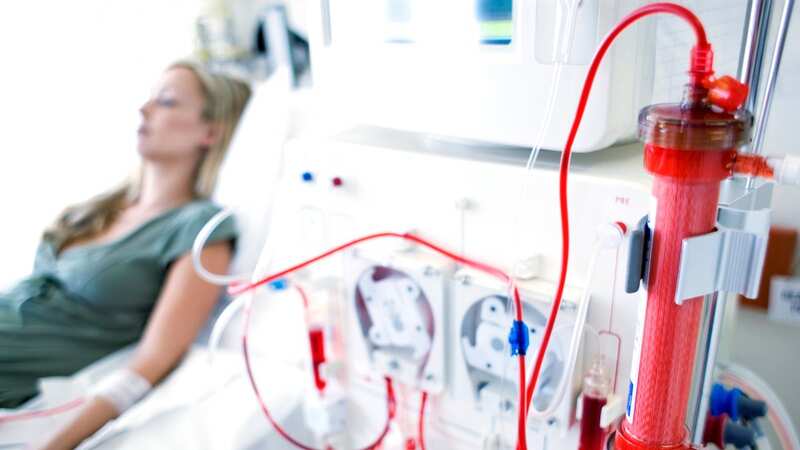'Step closer to a safer way of stopping kidney failure in diabetics'

Diabetes, both types 1 and 2, comes with very serious complications, which could lead to amputations. It can also affect the eyes, heart and kidneys, which fail prematurely in four out of 10 people with diabetes.
It means there are 4.8 million people in the UK with diabetes who are four times more likely to need either dialysis or a kidney transplant.
But what if we could halt that deterioration of the diabetic kidney, head off kidney failure, and therefore the need for dialysis?
Research from Bristol University offers hope of changing the end game.
Recent clinical trials show a commonly used blood pressure medicine, spironolactone, could be an effective treatment, reducing leakage of protein from a weakened kidney into the urine.
 Teachers, civil servants and train drivers walk out in biggest strike in decade
Teachers, civil servants and train drivers walk out in biggest strike in decade
But the drug can have some serious side effects, including high potassium levels, so doctors have been reluctant to use it.
The aim of the researchers from Bristol Medical School, in collaboration with international colleagues from Italy, the Netherlands and Texas, was to understand how spironolactone could prevent damage to diabetic kidneys.
They found the drug protects the kidney by helping preserve the integrity of a gel-like (glycocalyx) layer on the surface of blood vessels inside the kidney.
In diabetes, this protective coating degrades and the researchers have found a way to slow this down.
Using kidney biopsy specimens from patients, the team developed a novel method to measure how the coating is damaged and how spironolactone acts.
Their results showed it damps down a group of destructive enzymes, thereby helping preserve the gel-like layer, preventing disease progression.
Dr Matthew Butler of Bristol University and the study’s joint senior author, said: “This study is really exciting for us because it confirms
that using spironolactone preserves kidney function by acting on the glycocalyx”.
The team’s next steps will be to look at repurposing drugs with similar actions to spironolactone to see if they could benefit patients with kidney disease – but to avoid the troublesome side effects.
Dr Aisling McMahon, executive director of research and policy, Kidney Research UK, added: “Improving outcomes for patients is a key priority at Kidney Research UK.
“This work is an important step that will allow new treatments for diabetic kidney disease to be identified faster.
 Greggs, Costa & Pret coffees have 'huge differences in caffeine', says report
Greggs, Costa & Pret coffees have 'huge differences in caffeine', says report
“We congratulate the team on this innovative approach and look forward to seeing further developments.”
Read more similar news:
Comments:
comments powered by Disqus

































